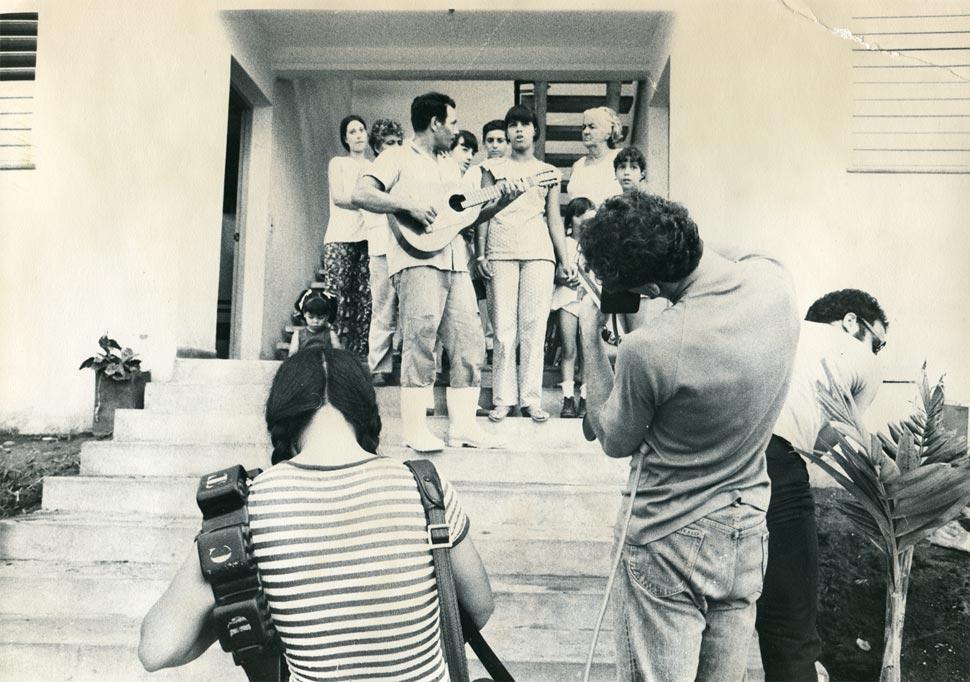Usa / 113’
language English, Spanish
screenplay, cinematographer and sound Jon Alpert
editor David Meneses
Usa / 113’
language English, Spanish
screenplay, cinematographer and sound Jon Alpert
editor David Meneses

Since 1959, when Fidel Castro ascended to power in the revolution that marked an era, no one had ever gone as deep inside Cuba as Jon Alpert. He began filming in Castro’s Cuba in 1972, having become fascinated with the country, its people, and its culture years earlier. Alpert brought along a small crew and a portable camera, beginning a fascinating, intimate, decades-long chronicle of the Communist country that was 90 miles off the coast of Florida, a longtime political foe, but a mystery to much of the world. Compiled from more than a thousand hours of footage and filmed over 45 years, Alpert follows three families and Fidel Castro. He was there for Cuba’s optimistic socialism of the early ’70s, and for the 1979 Mariel boatlift. He then returned to cover the hardships of the 1980s; the harrowing “Special Period” after the fall of the Soviet Union, when Cuba literally went dark. Cuba and the Cameraman is Castro himself—unguarded, offthe- cuff, and unedited. In their numerous, exclusive oncamera interviews, the cigar-chomping revolutionary affectionately called the straight-shooting Alpert “The Journalist,” and showed a side of himself never seen publicly. Alpert was one of the last Americans to see Castro before his death. Cuba and the Cameraman captures the soul of a nation and its people, and an unknown side of the man who shaped it.
It was the 70s and as kid growing up in New York we were always fighting to improve social services in our neighborhood. Discouraged by multiple failures and beckoned by stories about the off-limits Cuban Revolution’s activities I hitched a ride on a sailboat headed for Havana to see what I could see and to film what I could film. It was the early days of video and our primitive equipment and lack of expertise mirrored the experiments of the Revolution. Short on experience. Limited with resources. Long on enthusiasm. I made friends, real friends, and began following the same people over decades. I often worked with my family. At an age when today’s kids are plugged into their screens my daughter was helping me follow peasants as they plowed their rocky red fields. Together we recorded events of immense historical importance. We also captured moments of surprising intimacy. We even coaxed Fidel Castro to write an excuse note to my daughter’s high school teacher because she was skipping school so we could ask Fidel why the Cuban economy wasn’t working. This film is very personal. The people who you will get to know invited me into their lives me and accepted me as part of their families. Even Fidel. They let me witness a half century of their history, hopes, and human struggle. It’s my honor to share it with you.
LUNGOMARE MARCONI
30126 LIDO DI VENEZIA
TEL. +39 0415218711
info@labiennale.org